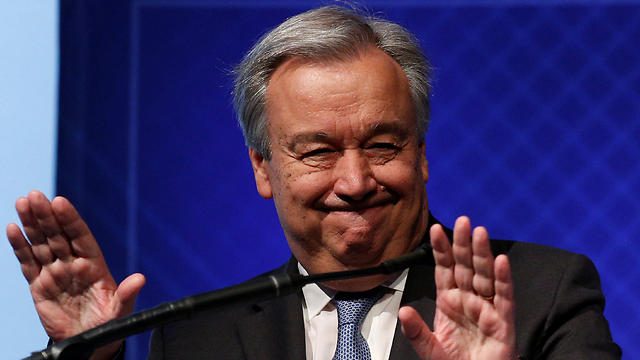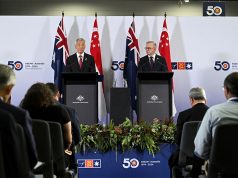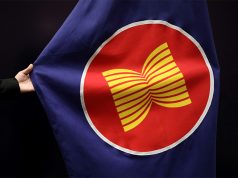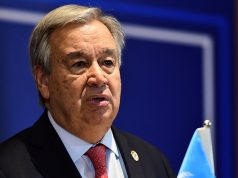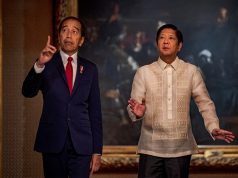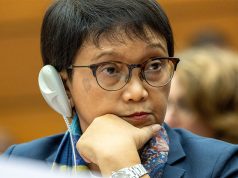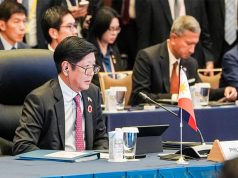MANILA, Philippines — United Nations Secretary-General Antonio Guterres said he was “heartened” by the liberation of Marawi City from pro-Islamic State gunmen by government forces in October as he commended the Philippines’ efforts towards achieving peace over the years.
In his opening remarks at the 9th ASEAN-UN Summit late Monday night at the Philippine International Convention Center in Pasay City, Guterres also sounded the alarm on the plight of Myanmar’s Rohingya minority: “I cannot hide my deep concern with the dramatic movement of hundreds of thousands of refugees from Myanmar to Bangladesh.”
“It is a worrying escalation in a protracted tragedy and a potential source of instability in the region, and radicalization,” he said in remarks similar to those Defense Secretary Delfin Lorenzana made at last week’s “ASEAN Leadership Amid a New World Order” forum.
At that event, Lorenzana said he and other defense ministers in the region worry that the refugees may be recruited and trained by terrorists if Myanmar did not act on the problem soon.
“I am extremely concerned by the threat of global terrorism and violent extremism, including in this region,” Guterres said as he pointed out the UN is establishing a dedicated “Office of Counter-Terrorism” and “prioritizing support for national and regional efforts to counter terrorism and to prevent violent extremism.”
The UN chief expressed readiness to provide technical support to ASEAN member-countries in the fight against terrorism and violent extremism, as well as “transnational organized crime, including drug trafficking and people trafficking.”
But he stressed these efforts should be pursued “through policies designed to protect their citizens with effective law enforcement and respect for human rights.”
He also welcomed the Manila Declaration to Counter the Rise of Radicalization and Violent Extremism, which was adopted recently by ASEAN officials on transnational crime.
Guterres pointed out that the key to preventing violent extremism and conflict is sustainable and inclusive development.
In ASEAN, he said, economic growth has been able to lift millions out of extreme poverty over the past 50 years.
“Multilateralism and regional cooperation will be critical to a peaceful and prosperous future,” he added.
Delighted to be in Manila celebrating @ASEAN 50th Anniversary : the UN stands with you as we move forward together.
— António Guterres (@antonioguterres) November 12, 2017
“ASEAN was founded at a time of great turmoil in Southeast Asia,” Guterres reminded officials present at the ASEAN-UN Summit. “Five decades on, ASEAN is an indispensable partner in ensuring peace, stability and prosperity in Southeast Asia and beyond.”
Noting that “the five men who signed the founding ASEAN declaration were two Muslims from Indonesia and Malaysia, a Christian from the Philippines, a Hindu from Singapore, and a Buddhist from Thailand,” Guterres said this was “just one sign of remarkable diversity at the heart of your region, as we meet at a time of proliferating divisions and crises.”
These crises include those caused by climate change, which is “exacerbating severe weather events like hurricanes and storms,” he said, adding: “I will stress the importance of collective action at the global and regional levels at the COP23 in Germany later this week.”
The annual UN Climate Change Conference runs from November 6 to 17, 2017 in the city of Bonn.
Foreign Affairs Secretary Alan Peter Cayetano, in his own opening remarks, echoed some of Guterres’ sentiments.
“There’s a lot of work to be done with the UN and its bodies in areas such as sustainable development, disaster risk reduction, climate change, migration, and many other areas where we can work together,” Cayetano said.
He thanked Guterres for going all the way to Manila to take part in the ASEAN-UN Summit.

